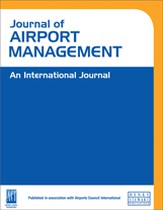Solid municipal waste audit analyses at Denver International Airport
Abstract
Abstract In its 2013 Strategic Plan, Denver International Airport (DIA) set a goal of decreasing its amount of waste sent to landfill by 10 per cent over the next five years using DIA’s 2012 landfill waste as a baseline. An audit of DIA’s solid municipal waste stream was conducted to analyse DIA’s current waste streams, to identify how far DIA is from reaching its landfill diversion goal, and to provide recommendations and solutions that would enable DIA to move closer to its strategic waste diversion goal. This paper describes, analyses and draws conclusions from a comprehensive assessment of waste generated at DIA from the following areas: Airport Office Building (AOB)/Main Terminal; Concourses A, B and C; East & West Overflow Parking; Air Cargo; and Maintenance. The assessment, which was conducted from 21st to 24th June, 2010, sampled 20 loads (totalling 1,464.9 kg) collected from compacted trash delivered from the aforementioned locations. Samples were sorted into 31 material types (organised into seven overarching categories). Weights obtained from the sorts were used to evaluate the effectiveness of DIA’s current recycling programmes and to identify areas for improving both the current and future recycling programmes and for identifying potential savings opportunities associated with waste diversion strategies. Based on sample results, the assessment revealed that DIA has an opportunity to decrease the amount of waste sent to landfill by over 62 per cent. The waste audit revealed that up to 3,281.3 metric tons of recyclables (29.8 per cent of the solid waste stream) on an annual basis was sent to landfill instead of being diverted to the existing single-stream recycling programme, as well as 24.5 metric tons (0.2 per cent) of recyclable e-waste and 97.0 metric tons (0.9 per cent) of construction and demolition (C&D) materials. In addition, on an annual basis, DIA has the potential to divert up to 3,187 metric tons (28.9 per cent) of its organics by expanding its current composting programme to include pre-consumer and post-consumer waste throughout the entire airport. Finally, DIA could potentially divert an additional 173.6 metric tons (2.4 per cent) annually by implementing new diversion programmes.
The full article is available to subscribers to the journal.
